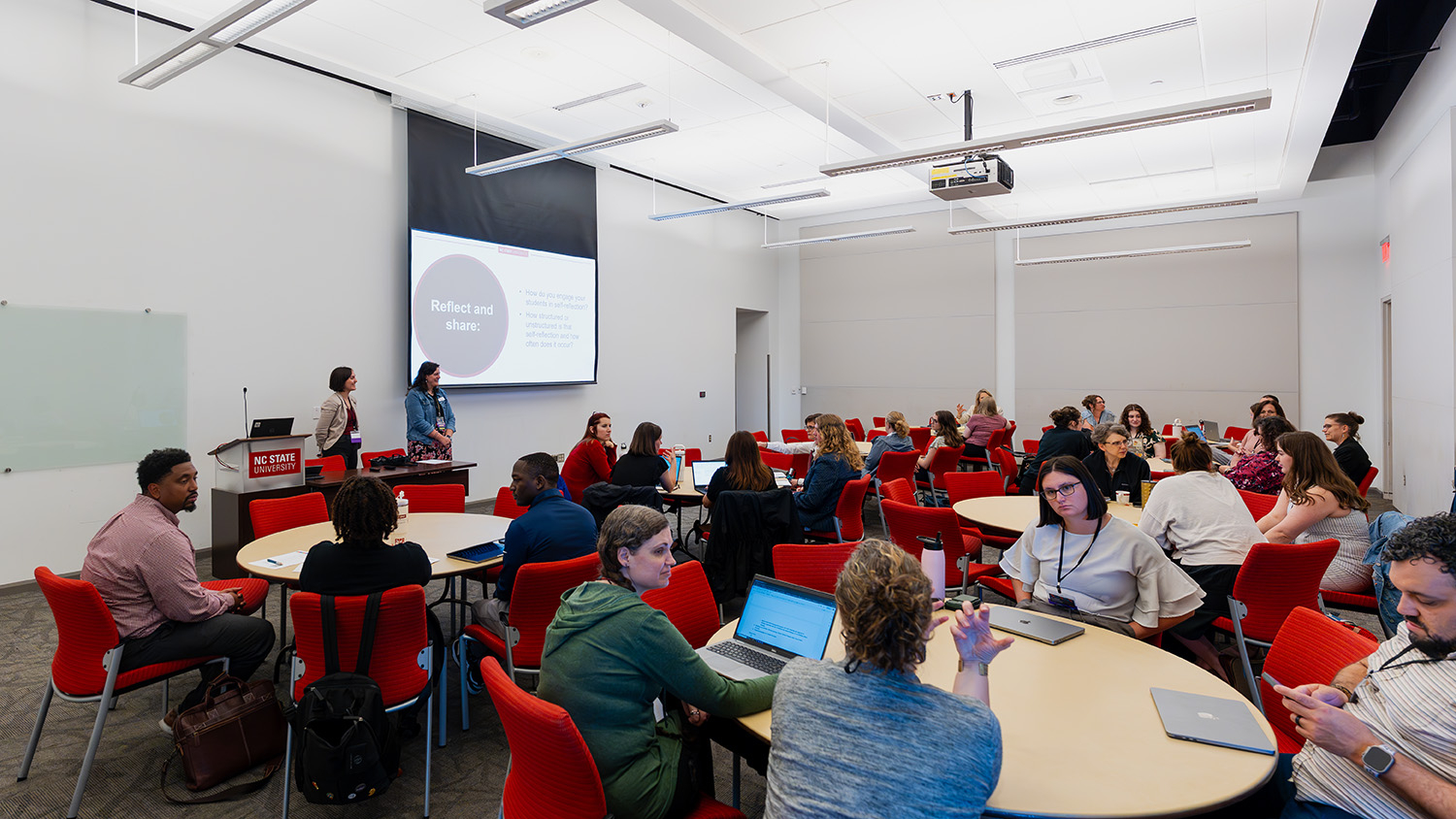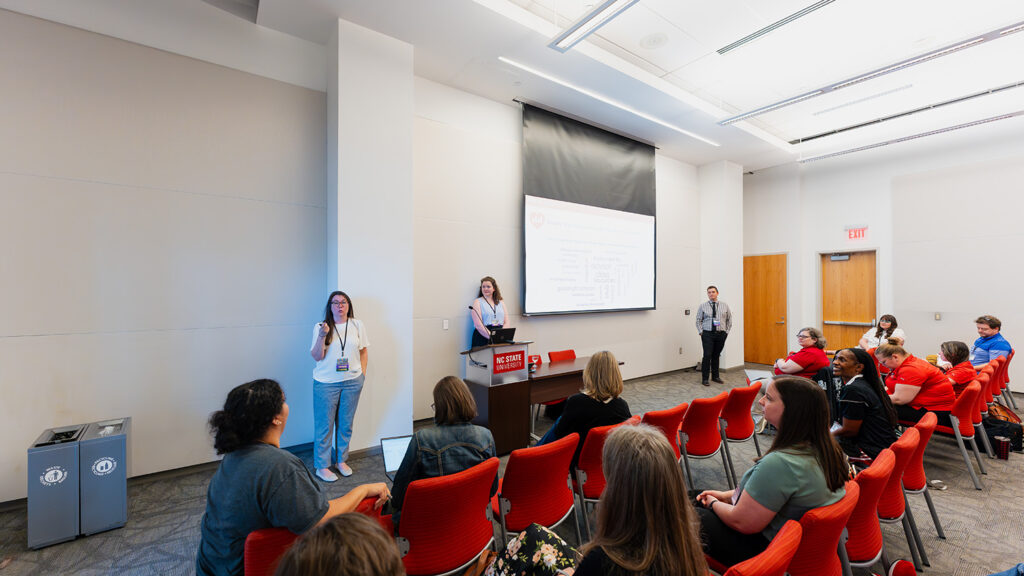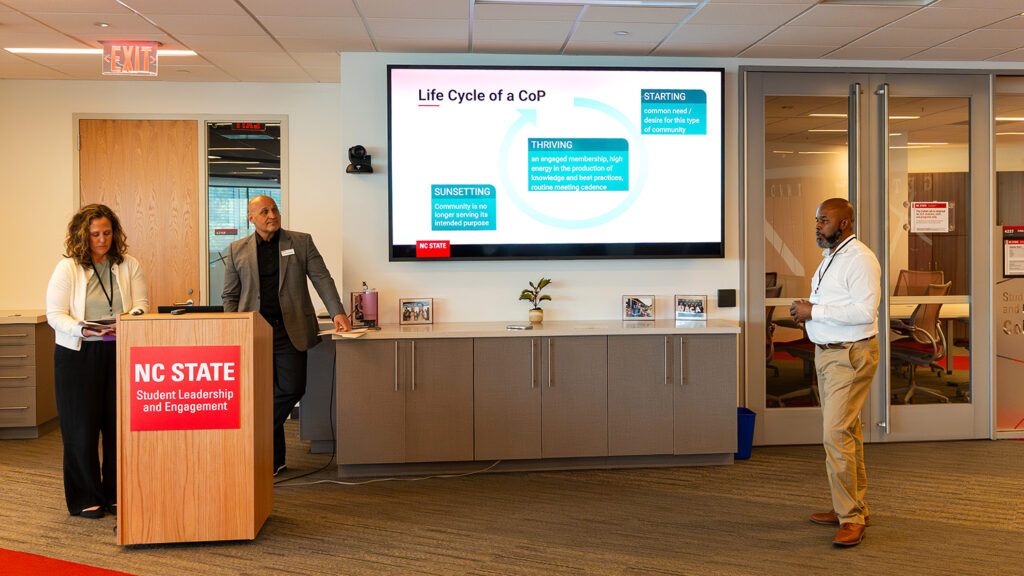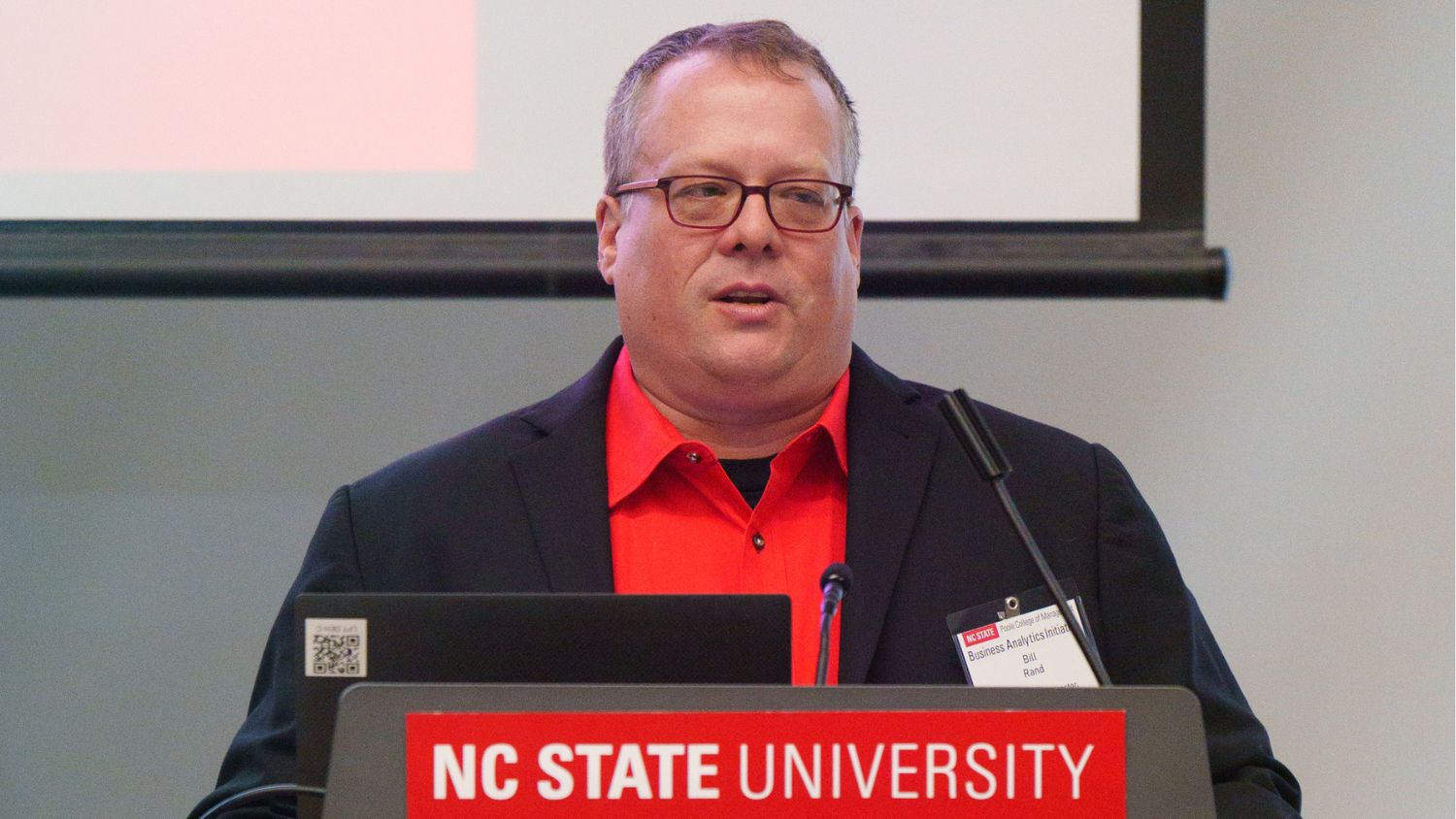Inaugural Student Success Symposium Fosters Campus Collaboration
The event featured over 160 faculty and staff members from 10 colleges, include Poole College's Tamah Morant.

In May, the Inaugural Student Success Symposium was held as an opportunity for faculty and staff from across campus to come together to identify best practices, strategies and resources to support undergraduate graduate student success.
This event was a joint effort between the Academic Advising Committee and the Student Success Committee, with a planning committee for the event led by Associate Director of Student Success Initiatives Dave Johnson and Senior Director of Student Success Initiatives Lisa LaBarera-Mascote. Over 160 faculty and staff members from 10 colleges, three divisions and representative units within the Provost’s Office gathered at Talley Student Union.
Throughout the day, both through lessons learned from speakers and the various sessions led by their colleagues across campus, the participants strove to foster strategies for infusing personal wellness into student-serving roles, incorporating the symposium’s goals and messaging into their work throughout the school year.

“It was inspiring to see so many colleagues from across campus gather for the inaugural Student Success Symposium,” Scott said. “The energy and ideas shared throughout the day affirmed what we know to be true – that student success is a shared responsibility, and our impact is greatest when we work together to empower the whole student, both in and out of the classroom. I’m incredibly proud of the collaborative spirit that brought this event to life and excited for the momentum it has sparked.”
To open the symposium, Scott spoke about the importance of campus collaboration on student success initiatives, and thanked the members of the Student Success Committee, including Carrie Zelna, Tamah Morant and Kesha Reed, for their work throughout the year, saying that “we as a campus community will greatly benefit from the committee’s work.”
“In the Division of Academic and Student Affairs we think about the successful students as ones who ‘graduate as well-educated, career-ready, socially responsible critical thinkers equipped to thrive in a diverse, interconnected world and solve complex problems,” Scott stated in her opening remarks. “Successful students strive to develop purpose, confidence and personal identity while cultivating an appreciation for a variety of perspectives, leadership in various forms and a commitment to lifelong learning. They prioritize wellness, embrace global citizenship, and stay connected to the university.’ Though there is no universal definition of student success, and it can vary depending on the context, one thing is clear: we all want our students to be successful, however it is defined.”
The symposium also featured a keynote speaker in Audrey Jaeger, a W. Dallas Herring professor of Community College Education and the executive director for the Belk Center for Community College Leadership and Research.
Jaeger’s keynote speech, titled, Every Thread Counts: Supporting Student Success from Where You Are, spoke about how every faculty and staff member, no matter their role at an institution, are parts of threads that weave a fabric of support for students.
Jaeger used a “five P” adult learning framework, focusing on public messaging, partnerships, process, pathways and proximity.
“Proximity is the key in this framework, specifically when thinking about our work with students on campus,” LaBarbera-Mascote said. “The space we provide, the relationships we build, and the time that we invest all work to provide the system of support needed to ensure student success. Students succeed academically when they also feel seen, valued, supported, and that they belong.”

After the keynote speech, the symposium broke out into sessions throughout the afternoon, with over 40 presenters sharing information about their college/unit’s student success practices across 20 different sessions.
These presentations facilitated discussions regarding the institutional gaps that impact student success, how to generate pathways to solutions, and highlighting avenues to use an intersectional lens in student success practices.
“I think it’s huge that so many people invested their time in sharing the work that they’re doing within their units, departments and colleges,” LaBarbera-Mascote said.
Going forward, the symposium’s organizers plan to share slides and other resources/information from the sessions with faculty and staff members who were unable to attend, to enable them to learn more about student success best practices. They will also offer continued opportunities to join networking and collaboration groups across units to address student success challenges.
“We hope to keep it going in the future,” Johnson said. “We would love to always have a time period for faculty and staff on this campus to come together to talk about why student success is important,” Johnson said.
This post was originally published in DASA.
- Categories:


